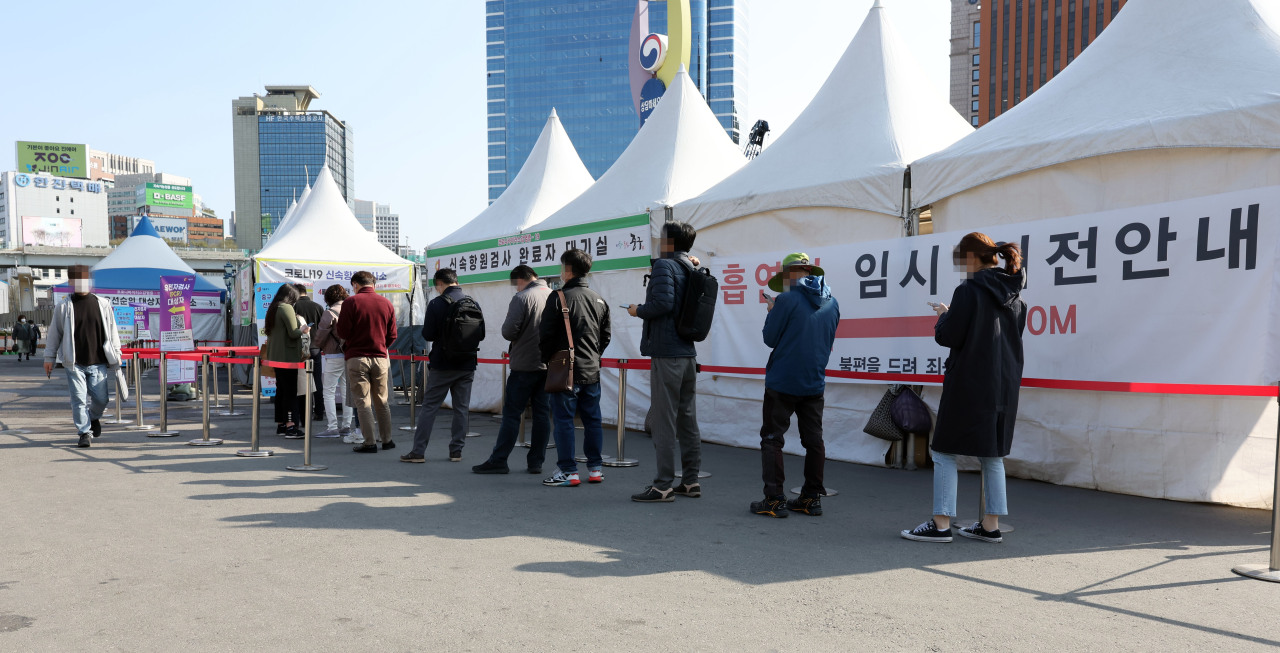South Korea’s daily COVID-19 infections stayed in the 220,000s for the 24 hours of Wednesday, the government reported Thursday. Authorities are looking at the reinfection rate, which stands at 0.0018 percent amid the omicron wave, relatively lower than that of other countries.
According to the Korea Disease Control and Prevention Agency, the country’s daily COVID-19 cases came to 224,820, down 61,474 from the previous day’s 286,294. It is a significant drop from the 320,699 marked on March 31 and 395,528 on March 24.
The country’s total caseload rose to 14,267,401, nearing 15 million, which would mean some 30 percent of Koreans have had at a coronavirus infection.
Korea saw 348 deaths on Wednesday, adding up to a total of 18,381 deaths.
While Korea continues to see a significant number of deaths every day due to COVID-19, the Central Disease Control Headquarters highlighted that nearly 50 percent of children aged 9 and under have been infected at least once.
A total of 1,846,489 children or 49.1 percent of the age group have contracted the virus.
A total of 15 children from the age group have lost their lives. All of them were not vaccinated. Six had underlying health conditions while five did not. There was no additional information on the remaining four yet.
“Children aged between 0 and 9 are not subject to vaccination recommendation. They have weak immunity compared to other age groups, too,” senior Korea Disease Control and Prevention Agency official Park Young-joon said at a briefing held Thursday.
As the omicron wave rages on, disease control authorities are looking into the country’s vaccination guidelines.
“We are reviewing whether it is necessary to recommend the third shot of vaccination to those who had been confirmed with COVID-19,” Kwon Geun-yong, another official from the national health agency, said at the briefing.
“As of now, we do not recommend the third shot to those who had COVID-19 after receiving two shots of the vaccine. We are reviewing whether it is necessary to recommend another shot of vaccine to those who had already experienced the disease,” Kwon said.
Authorities are also looking into the reinfection rate here, which remains exceptionally low despite the surging number of confirmed cases.
According to the Central Disease Control Headquarters, the reinfection rate stood at a miniscule 0.0018 percent between January and March 16, lower than the 0.03 percent between July and December, when the delta variant was active here.
Authorities admitted to the possibility of errors in the counting system.
“We are looking into 9 million points of available data first,” authorities said Wednesday. “After reviewing the preliminary results, we will expand the investigation subject by stages.”
“The current statistics can be unreliable after the surge of confirmed cases as it is based on the assumed reinfection cases being very low compared to that of other countries,” authorities said.
It is possible that cases of reinfection may have been left out after the surge of omicron infections that have swept the nation.
Meanwhile, on Monday, a man in his 30s who tested positive for COVID-19 was found unconscious at home in Daegu. He was transferred to a hospital but died the next day.
The man was isolating at home after being diagnosed Saturday. As he did not have underlying health conditions aside from diabetes and had received two shots of the COVID-19 vaccine, he was categorized in the general management group.
Only those aged 60 and older or those in their 50s with underlying health issues or weak immune systems are classified as requiring intensive care, which involves being monitored twice a day by health care personnel.
The local public health care center reported the incident to the Korea Disease Control and Prevention Agency and requested an investigation.
By Im Eun-byel (
silverstar@heraldcorp.com)








